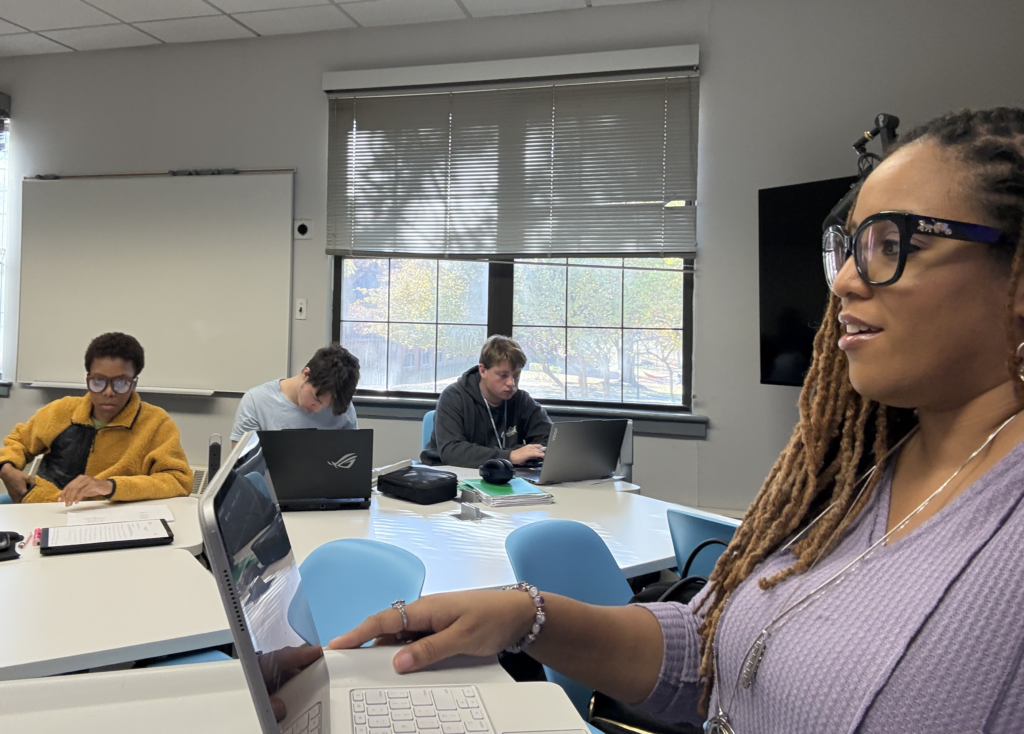Thomas Jefferson University
-
-
Adjunct Instructor
-
College of Humanities and Sciences
-
Hallmarks Core General Education Program
-
raven.moses@jefferson.edu
-

Overall, my teaching is aimed at developing students’ ability to craft an informed, nuanced and critical understanding of intellectual ideas and lived experiences through the careful analysis and synthesis of varied and dynamic course materials. As an Africana Studies and Literature professor, I encourage students to analyze the meaningful contributions of African-descended people to global history and society, to see the functional connection between literature and reality, and to envision themselves as integral and active participants in the struggle for solutions to the problems that negatively impact their various communities.
In service of these goals, my classroom strategies routinely include working with students to trace the historical context of various texts, ideas, events and figures with the intention of understanding the progression of important concepts over time and as a means of drawing specific connections with the contemporary circumstances that significantly shape students’ lived experiences. Within my courses, I often combine academic and contemporary/popular readings, open and inclusive discussion, and interactive classroom activities aimed at promoting concrete application of the ideas mined from our readings and discussions.
Presented is a selection of the courses I have taught most often. I’ve included a description of each course as well as a link to its syllabus. For a full listing of all the courses I’ve taught, please refer to my full CV.
This course centers the Africana woman author as a credible and valuable source within the literary tradition. In doing so, it incorporates diasporic Africana women authors from various backgrounds to highlight the plight of the authors, their Africana women-focused characters, and applies literary themes to various aspects of contemporary Africana life. Additionally, this course centralizes African-centered and other Africana literary criticism to critique this literature in juxtaposition with Western literary criticism. Literature written by Africana women, in the form of fiction (novels, short stories, etc…) and non—fiction (essays, etc…), are critically analyzed and engaged.
This course introduces and grounds students in the history and development of the social and political thought of Africana people in America. This course will explore the critical political ideologies, responses and movements engaged in by Africana people in America from the period of enslavement up to the contemporary moment. Emphasis will be given to exploring how Africana people have and continue to exert individual and collective sociopolitical agency within an American context. Students in this course will examine the seminal debates in Africana political discourse, work to develop proficiency in the realm of Africological inquiry, and explore how to best leverage the discipline’s vast intellectual tools in the ongoing struggle to solve challenges faced by the contemporary Africana community.
I have taught multiple iterations of remedial, first-semester and second-semester academic writing courses. In general, these various courses are designed to develops students’ abilities to use writing as inquiry. They introduce rhetoric, genre theory, writing as a process, revision, and strategies of primary and secondary research. These courses often focus on teaching students how to find, evaluate, integrate, and document sources from a variety of media; and how to engage in the many stages of the research and writing processes, from invention, to review, to final product. And they also review grammar, style, and different citation conventions. Lastly, these courses often engage students in ongoing reflective analysis about writing and their writing development. Below are examples of both first-semester and second-semester writing courses.
raven@ravenmoses.com
“A race of people is like an individual man; until it uses its own talent,
takes pride in its own history, expresses its own culture, affirms its own selfhood, it can never fulfill itself.” — Malcolm X